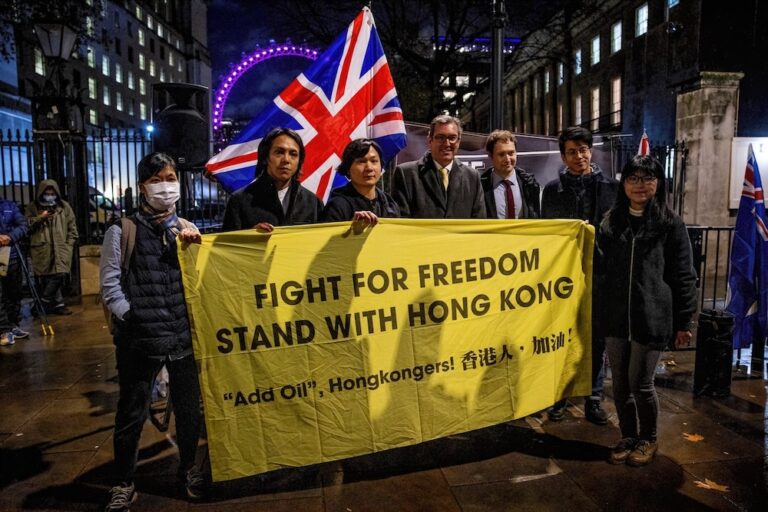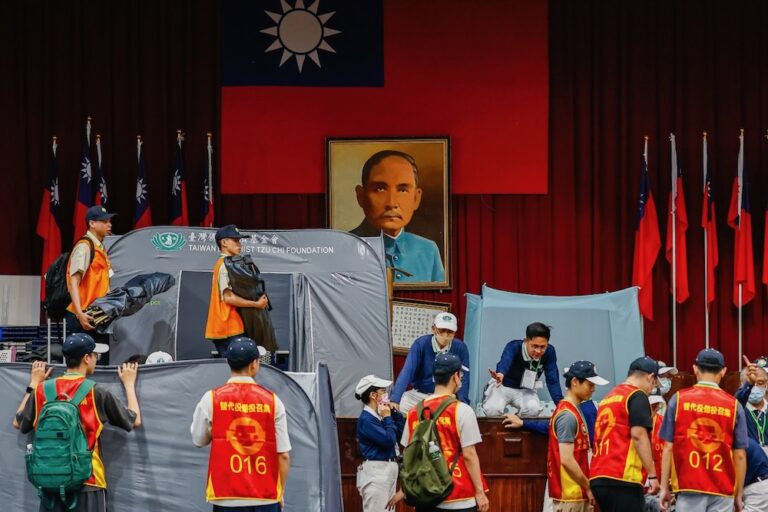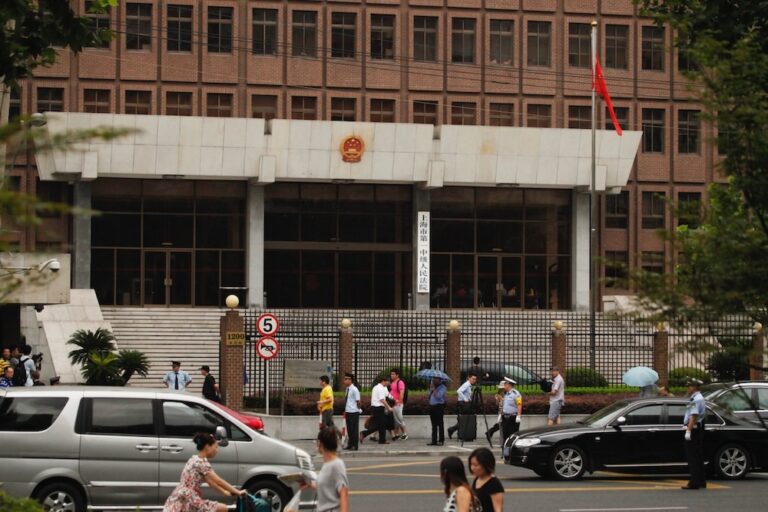**For background, see IFEX alerts dated 1, 2 August, 14 September 1994 and 2 February 1995** On 16 January, four stations were simultaneously closed in different parts of the island. The four are Voice of Taiwan Nation, which broadcasted from a mountain-top Buddhist temple to the north of Taipei, the Kaohsiung station Voice of Sweet […]
**For background, see IFEX alerts dated 1, 2 August,
14 September 1994 and 2 February 1995**
On 16 January, four stations were simultaneously closed in
different parts of the island. The four are Voice of Taiwan
Nation, which broadcasted from a mountain-top Buddhist temple to
the north of Taipei, the Kaohsiung station Voice of Sweet Potato,
whose name refers both to the island’s shape and its native-born
inhabitants, another Kaohsiung station, and one in Changhwa.
Police squads reportedly used two helicopters to remove Voice of
Taiwan Nation’s transmission mast.
On 3 January, approximately 300 police officers raided TNT Voice
of New Formosa, confiscating the station’s equipment. Eight days
later, TNT — which had resumed broadcasting in the interim —
was raided again. Also raided by police on 3 January was the New
Concept station. According to Taiwan’s Government Information
Office, the station was raided because it was suspected of having
incited a riot by taxi drivers in December, in which over 20
people were injured. However, officials have not to our knowledge
shown that the stations at any time encouraged taxi drivers to
riot or commit acts of violence. What police did state following
the riot, according to press reports, was that pirate radio
stations had encouraged listeners to show up — as a gesture of
support — at a Taipei hotel, where a number of taxi drivers had
gathered to protest a colleague’s murder.
According to CPJ, the explosive growth of unlicensed stations
during the past two years has played a significant role in
Taiwan’s democratization. Most of the unlicensed stations support
the liberal opposition Democratic Progressive Party, while a few
— such as New Concept — represent the views of the right-wing
opposition New Party. In addition, the live call-in talk shows on
many of the stations have increased public debate of current
political issues. They have also served as an important medium of
news transmission in the Taiwanese and Hakka languages, neither
of which is widely represented in the official broadcast media.
The Taiwanese government announced its intention last year to
reduce capitalization requirements for low-power stations seeking
licenses. However, the number of licenses being issued falls
considerably short of the number of applicants. Of the 174
community stations whose license applications were reviewed in
December 1994, only 46 were granted permission to broadcast.
Among those that were left out was TNT Voice of New Formosa.
Recommended Action
Send appeals to Taiwanese authorities:
stations and the levying of criminal charges against Mr. Hsu
Rong-chi are clear violations of the right to “seek, receive, and
impart information and ideas through any media and regardless of
frontiers,” guaranteed by Article 19 of the Universal Declaration
of Human Rights of the United Nations, to which Taiwan signalled
its willingness to abide in applying for readmission to the
General Assembly
unlicensed radio stations, drop all criminal charges against Mr.
Hsu Rong-chi, and liberalize the existing license regime so as to
permit all applicants to broadcast within reasonable guidelines
Appeals To
His Excellency Lee Teng-hui
President
Office of the President
Chungching South Road
Taipei, Taiwan
Republic of China
Fax: +886 2 314 0746, +886 2 311 5877, +886 2 331 1604His Excellency Ma Ying-jeou
Minister of Justice
Ministry of Justice
130 Chungching South Road, Sec 1
Taipei, Taiwan
Republic of China
Fax: +886 2 389 6239


